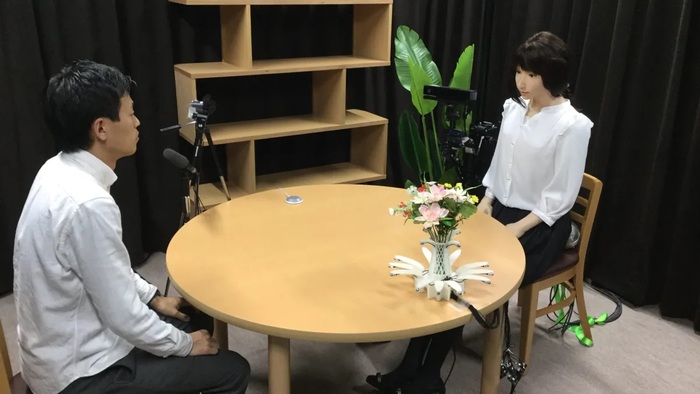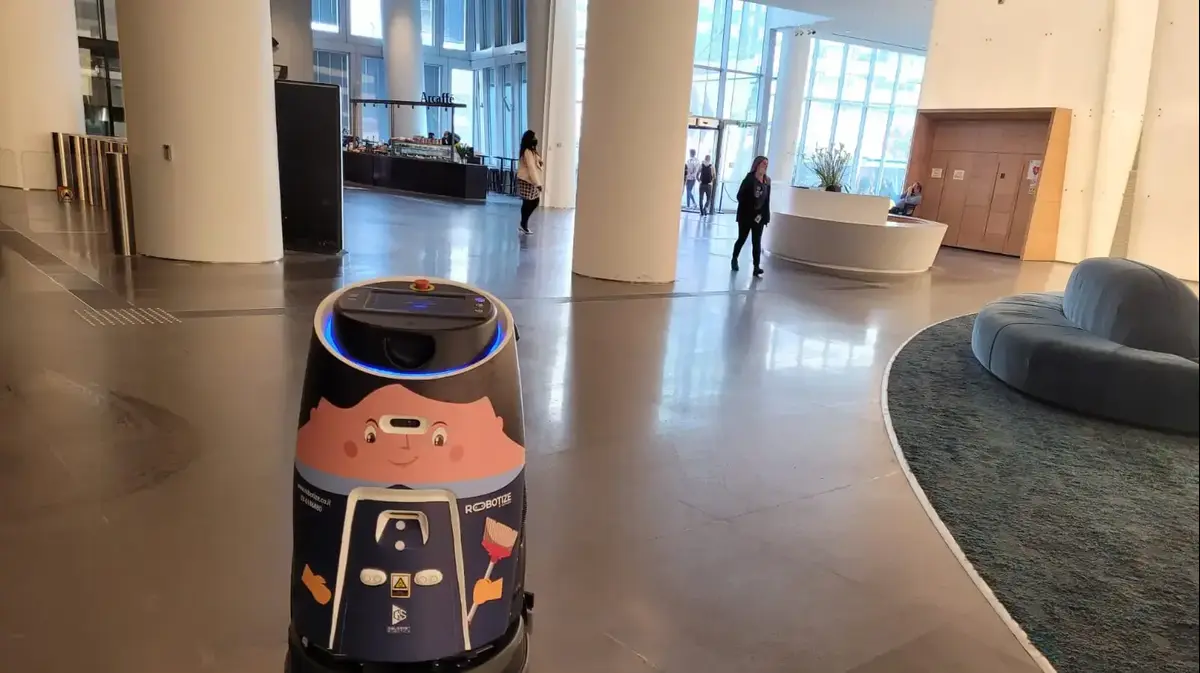Robots go to
school of humor
, to learn how to
react appropriately to the laughter
of human beings: it happens in Japan, where the
humanoid robot Erica
has been equipped with an artificial intelligence system that recognizes human laughter and evaluates whether to respond, perhaps with a polite chuckle or a more open laugh to allow for
more natural and empathic conversations
.
The results of the first experiments are published in the journal Frontiers in Robotics and AI by researchers from Kyoto University.
Erica 's
artificial intelligence system
was
trained
on the basis of over
80 dialogues
that took place during a speed date between some university students and the robot, remotely controlled by some amateur actresses.
In particular, three types of laughter have been distinguished: 'solo' laughter, which does not arouse the interlocutor's laughter;
those 'social', which are done only for education or embarrassment;
those 'cheerful', fruit of humor.
Based on the recorded audios, the algorithm learned the
basic characteristics of
social laughter, which tends to be more subdued, and cheerful laughter, with the aim of reproducing them in appropriate situations.
The robot's
sense of humor
was then
put to the test
in four short dialogues with one person.
The related videos were judged by 130 volunteers, who rated Erica's behavior much more natural and empathetic than when she always laughed in response to human laughter or when she didn't laugh at all.
Laughter is just one element that can make conversation with humans more natural.
"In fact, robots should have a distinctive character and we think they can demonstrate this through their behaviors during conversation, such as laughter, gaze, gestures and speech," emphasizes the first author of the study, Koji Inoue.
"We don't think this is an easy problem: it
may take more than 10 or 20 years
before we can finally have an informal chat with a robot like we would with a friend."









/cloudfront-eu-central-1.images.arcpublishing.com/prisa/LFO6NYKDYNGQJMNQRNDG6YRK7Q.jpg)